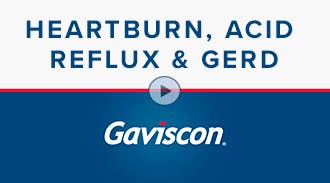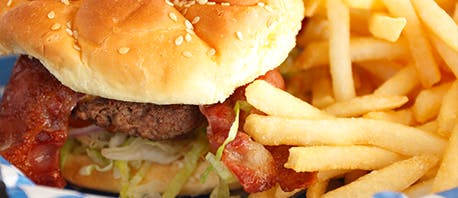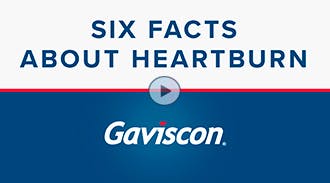ABOUT HEARTBURN

Heartburn occurs when stomach acid backs up into your esophagus. Normally, when you swallow, a band of muscle around the bottom of your esophagus (your lower esophageal sphincter) relaxes to allow food and liquid to flow down into your stomach. Then the muscle tightens and contracts again. If your lower esophageal sphincter relaxes or weakens, stomach acid can flow back up into your esophagus - causing heartburn.
Heartburn is a common condition that affects millions of people. A number of things can cause heartburn, like stress, spicy foods, acidic foods and beverages, over-eating, and foods with a high fat content.
Gaviscon® antacids are doctor-recommended and can keep stomach acid down for up to four hours.
*WHEN USED AS DIRECTED.






 |
|